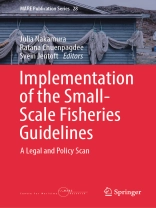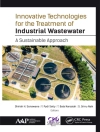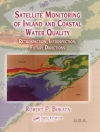This book provides a transdisciplinary assessment of multiple countries’ legal and policy frameworks vis-à-vis the Voluntary Guidelines for Securing Sustainable Small-Scale Fisheries in the Context of Food Security and Poverty Eradication, adopted in 2014 by the Committee on Fisheries of the Food and Agriculture Organization of the United Nations. Based on an appraisal framework used to facilitate the unpacking of those frameworks, this book collects country experiences and regional perspectives on a range of cross-cutting issues underpinning the protection of the rights and the promotion of justice for small-scale fishers and their communities.
This book aims to be the first collection to present a systematic and in-depth assessment of existing national legal and policy frameworks vis-à-vis the SSF Guidelines. This assessment is done through the transdisciplinary and collaborative work of researchers, governments, and civil society organizations for the analysis of the cross-thematic questions, which the contributors of this book aim to address. Firstly, what are the relevant laws and policies that matter for securing rights of small-scale fishers and their communities? How are small-scale fisheries defined by national laws and policies? How are small-scale fisheries treated (i.e., specifically or generally) in these instruments? Are there specific provisions and references to small-scale fisheries or any of its associated terminologies (e.g., artisanal, subsistence, traditional, indigenous)? Secondly, how the relevant instruments address the 8 small-scale fisheries key issues outlined in that rapid appraisal study? What are the strengths and gaps in these instruments? Do they address issues that are not covered by the SSF Guidelines? Do they contribute to clarifying other legal issues that are relevant for sustainable small-scale fisheries? Finally, since the book also aims to explore the accessibility of these legal and policy instruments for those to which they matter the most (the small-scale fishers), the following questions were also considered: What challenges do they face in knowing and understanding the relevant laws and policies in place? Which tools, measures and processes are available in the countries to ensure small-scale fishers can claim for their rights? To what extent judicial courts have recognized and/or granted rights to small-scale fishers?
Chapters 11, 19 and 20 are available open access under a Creative Commons Attribution 4.0 International License via link.springer.com.
Tabela de Conteúdo
Part I. The Role of Legal Institutions.- Chapter 1. Why the legal perspective?.- Chapter 2. Roles of institutions for the governability of small-scale fisheries.- Part II. The Meta Order Foundation.- Chapter 3. The fundamental rights of small-scale fishers and their communities in international jurisprudence.- Chapter 4. Securing the rights of small-scale fishers and their communities in the context of the Fisheries Management Areas in the Philippines.- Chapter 5. Legal and policy assessment for the implementation of the Small-Scale Fisheries Guidelines in Mexico: A baseline for Blue Justice.- Chapter 6. Human dignity is on the line: Small-scale fisheries, blue growth, and human rights in Lamu, Kenya.- Chapter 7. Legal and policy frameworks in Brazil: Valuing tenure rights, decent work, and gender equality in small-scale fisheries.- Chapter 8. Policy with purpose: The contribution of a legal perspective to define and secure a Small-Scale Fisheries Regime in Canada.- Part III. The Second Order Alignment.- Chapter 9. Policy re-alignment for the implementation of the Small-Scale Fisheries Guidelines in Thailand.- Chapter 10. Legal and policy frameworks of small-scale fisheries in Nepal: A move in the right direction.- Chapter 11. Coastal fisheries governance in the Pacific Islands: The evolution of policy and the progress of management-at-scale.- Chapter 12. Assessing legal and policy frameworks for small-scale fisheries in Bangladesh.- Chapter 13. Legal and policy instruments on rights and provisions on other issues in small-scale fisheries of Nigeria.- Chapter 14. Making sense of the legal policy frameworks governing small-scale fisheries in India.- Part IV. The First Order Reality.- Chapter 15. From Legal Frameworks to Practice: Challenges for Implementing the SSF Guidelines in Argentina.- Chapter 16. Legal and Policy Alignment with the Principles of Just and Sustainable Small-Scale Fisheries in Newfoundland and Labrador, Canada.- Chapter 17. Where Hasthe ‘Minsyuka (Democratization)’ Gone? A Thorough Assessment of the New Japanese Fisheries Act from the Perspective of Small-Scale Fisheries Sustainability.- Chapter 18. Legal and Regulatory Framework for Small-Scale Fisheries in Mainland Tanzania: Practical Realities and Opportunities.- Chapter 19. Implementing the SSF Guidelines in Sweden: An Investigation of Law and Policy From EU to Local Level.- Chapter 20. Tonga: Enabling Coastal Communities to Protect Marine Resources and Secure the Livelihoods of Small-Scale Fishers.- Part V. The Pathways Forward.- Chapter 21. Key Lessons and Next Steps for the Implementation of the SSF Guidelines: Making Legislation and Policies Work for Small-Scale Fisheries
Sobre o autor
Julia Nakamura is a legal officer with the Development Law Service (LEGN) of the Legal Office of the Food and Agriculture Organization of the United Nations (FAO). She supports the work of LEGN in delivering technical assistance on areas of food and agriculture law, and has contributed to various publications and activities relating to the SSF Guidelines’ implementation through policy and legal frameworks. Julia is concluding her doctoral studies about international law and small-scale fisheries, specifically the application of ecosystem and human rights approaches for securing participatory international fisheries management and conservation (University of Strathclyde, UK).
Ratana Chuenpagdee is a University Researcher Professor at Memorial University in St. John’s, Canada. She leads the global partnership for small-scale fisheries Too Big To Ignore (TBTI), which aims to elevate the profile of small-scale fisheries and rectify their marginalization in national and international policies. Some of the current activities are ‘Blue Justice’ for small-scale fisheries, transdisciplinary capacity training to support the implementation of the SSF Guidelines, and innovative fisheries governance. Ratana also co-leads a research module on informing governance responses in a changing ocean for the Ocean Frontier Institute, another major collaborative research between universities, governments, private sectors, and communities.
Svein Jentoft is a Professor Emeritus at the Norwegian College of Fishery Science, Ui T – The Arctic University of Norway. His long career as a social scientist specializing on fisheries management and fisheries communities has yielded numerous articles and books. He has been involved in and led many international projects in both the Global South and North. Jentoft is a founding member of TBTI and has been leading a working group on ʻGoverning the Governanceʼ anda research cluster related to the ʻSSF Guidelinesʼ. He has edited and authored several TBTI books including ʻLife Above Waterʼ (2019) and its recently published sequel ‘Gift of Community’.












